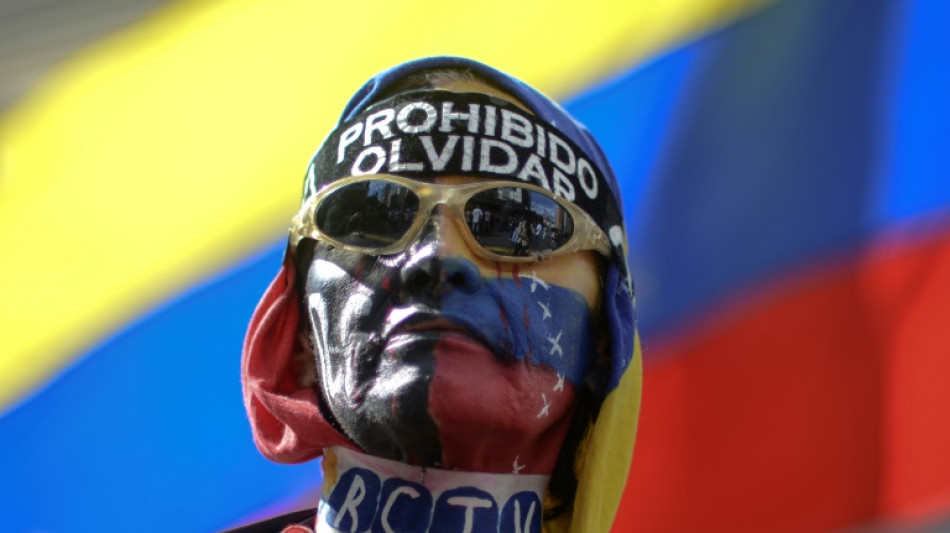
-
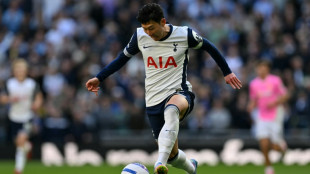 Son wants Europa glory to 'complete' Spurs career
Son wants Europa glory to 'complete' Spurs career
-
First group of white South Africans arrive in US for resettlement
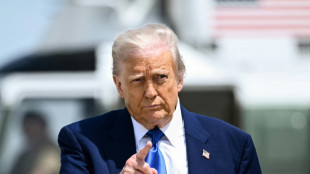
-
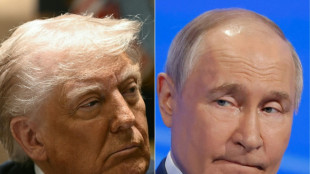 Trump mulls joining Ukraine talks in Turkey, Kremlin silent on Putin
Trump mulls joining Ukraine talks in Turkey, Kremlin silent on Putin
-
US, China agree to slash tariffs as Trump says will speak to Xi
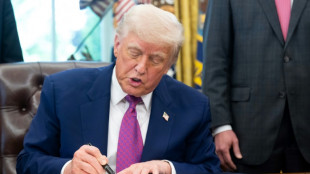
-
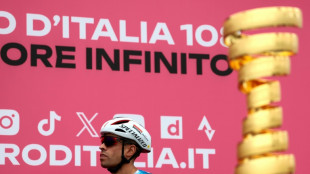 Spanish rider Landa returns home for 'long recovery' after Giro crash
Spanish rider Landa returns home for 'long recovery' after Giro crash
-
Kurdish militant group PKK ends decades of armed struggle
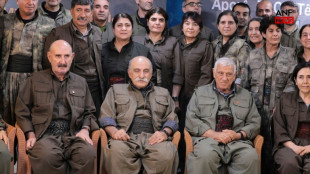
-
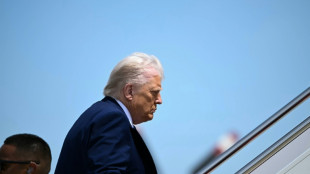 Trump says would be 'stupid' to reject Qatari Air Force One gift
Trump says would be 'stupid' to reject Qatari Air Force One gift
-
Uruguay's ex-president Mujica receiving palliative care: wife
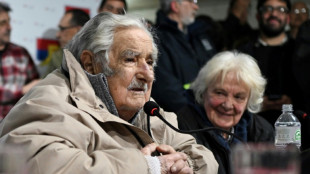
-
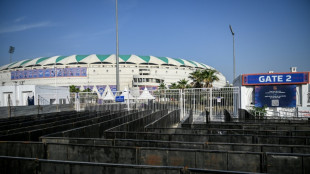 Remainder of IPL to be held between May 17-June 3 after ceasefire
Remainder of IPL to be held between May 17-June 3 after ceasefire
-
Hamas frees US-Israeli hostage
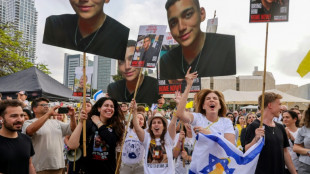
-
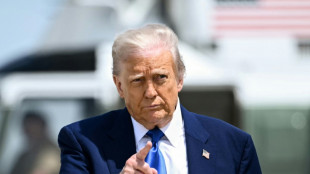 Trump defends resettling white South Africans as refugees in US
Trump defends resettling white South Africans as refugees in US
-
Sean 'Diddy' Combs was 'coercive and criminal,' jury hears
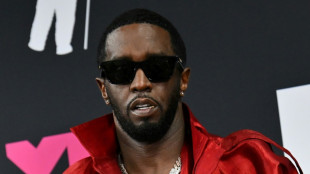
-
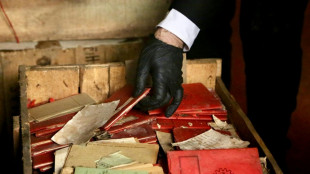 Nazi files found in champagne crates in Argentine court basement
Nazi files found in champagne crates in Argentine court basement
-
Myanmar junta airstrike kills 22 at school: witnesses
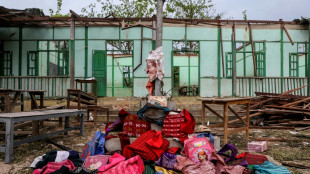
-
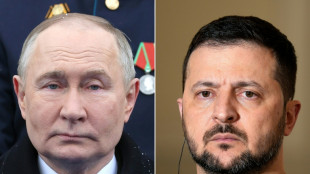 Zelensky wants Trump at peace talks, Russia silent on whether Putin will go
Zelensky wants Trump at peace talks, Russia silent on whether Putin will go
-
Ground-breaking Grand National winner Blackmore retires

-
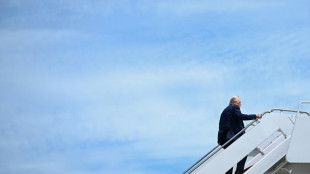 Trump heads on major Middle East tour
Trump heads on major Middle East tour
-
Nepal holds tribute for disappearing glacier
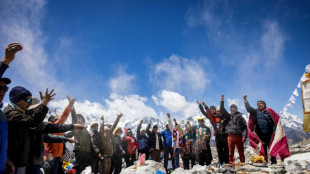
-
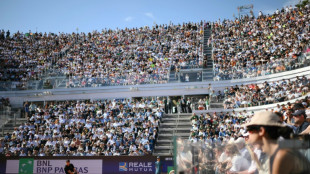 Sinner eases into Italian Open last 16, Osaka dumped out
Sinner eases into Italian Open last 16, Osaka dumped out
-
Real Madrid duo Vinicius, Vazquez injured
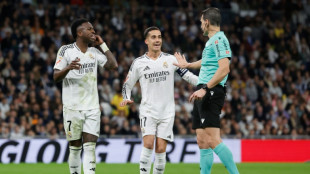
-
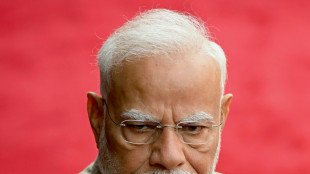 Indian PM Modi vows strong response to any future 'terrorist attack'
Indian PM Modi vows strong response to any future 'terrorist attack'
-
Opening statements start in Sean 'Diddy' Combs trial
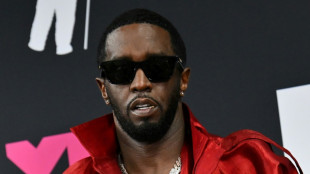
-
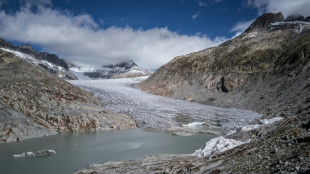 Snow cover of Swiss glaciers below average this year: study
Snow cover of Swiss glaciers below average this year: study
-
Jihadist attack kills 'several dozen' in Burkina Faso
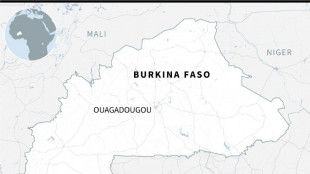
-
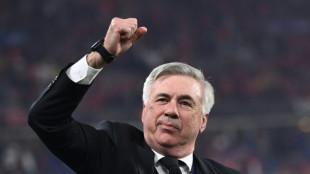 Ancelotti to leave Real Madrid for Brazil job
Ancelotti to leave Real Madrid for Brazil job
-
Trump announces drug prices cut with swipe at Europe
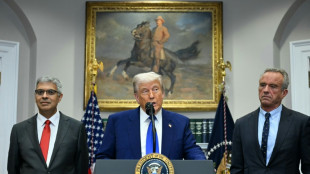
-
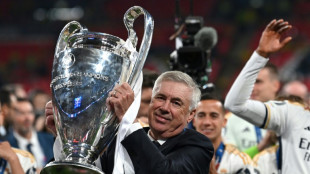 Ancelotti exits Madrid, hoping to add World Cup with Brazil
Ancelotti exits Madrid, hoping to add World Cup with Brazil
-
US, China agree to slash tariffs as Trump says to speak with Xi soon
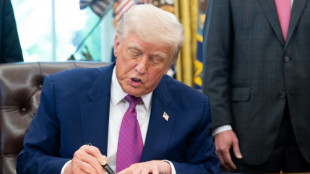
-
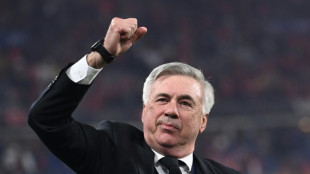 Ancelotti to take over as Brazil coach
Ancelotti to take over as Brazil coach
-
Israel urges ICC to drop arrest warrants against PM
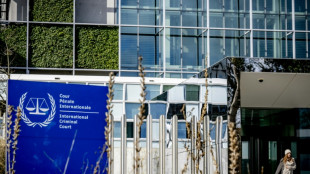
-
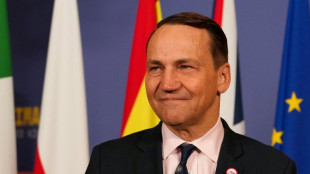 Poland to close Russian consulate in Krakow over 'sabotage'
Poland to close Russian consulate in Krakow over 'sabotage'
-
Kremlin rejects Europe's 'ultimatums' for truce with Ukraine
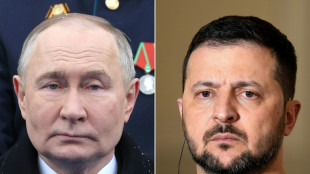
-
 Ireland rugby captain Doris ruled out for up to six months
Ireland rugby captain Doris ruled out for up to six months
-
Algerian attack survivor vows to be heard in court battle with award-winning author
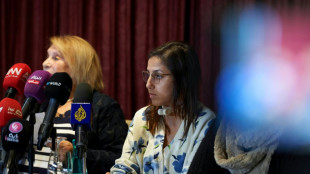
-
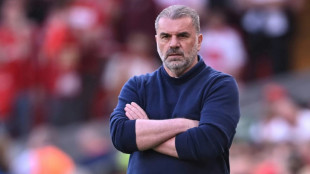 Europa League glory could be 'turning point' for Spurs: Postecoglou
Europa League glory could be 'turning point' for Spurs: Postecoglou
-
White S.Africans resettled in US did not face 'persecution': govt
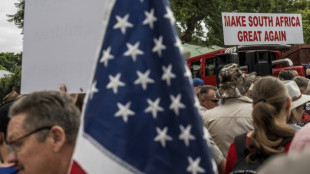
-
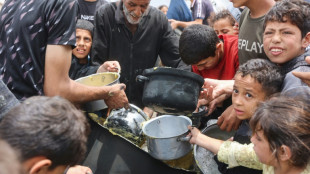 Gaza faces 'critical risk of famine': UN report
Gaza faces 'critical risk of famine': UN report
-
Indian teams defuse bombs in Kashmir border areas
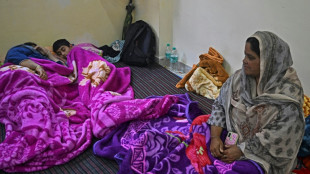
-
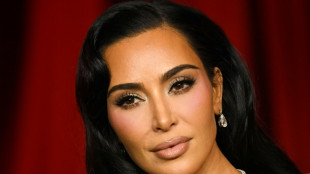 Kim Kardashian testifies in Paris multi-million-dollar robbery trial
Kim Kardashian testifies in Paris multi-million-dollar robbery trial
-
Alexander-Arnold exit will not overshadow Liverpool title party: Van Dijk
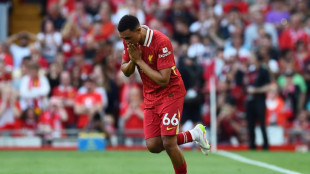
-
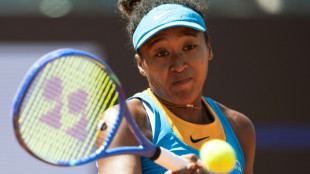 Osaka knocked out of Italian Open as fans await Sinner
Osaka knocked out of Italian Open as fans await Sinner
-
France condemns 'fake news' over Europe leaders' cocaine accusation
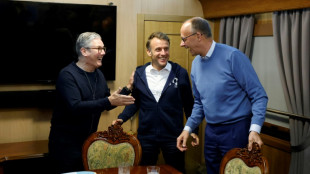
-
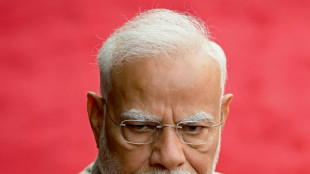 Indian PM Modi set to address nation after Pakistan truce
Indian PM Modi set to address nation after Pakistan truce
-
With Israel ties on the table, UAE offers Saudis an example

-
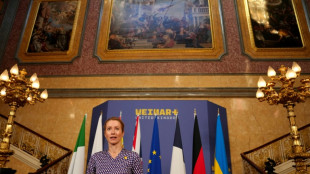 UK urges Putin to 'get serious about peace'
UK urges Putin to 'get serious about peace'
-
Leicester Tigers name Parling to replace Cheika as head coach
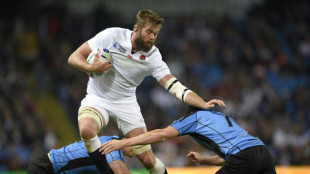
-
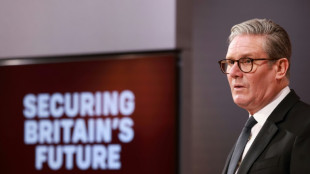 UK govt toughens immigration plans as hard-right gains
UK govt toughens immigration plans as hard-right gains
-
Markets rally after China, US slash tariffs
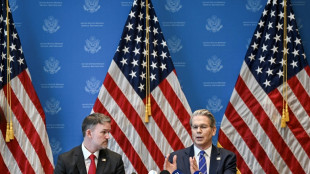
-
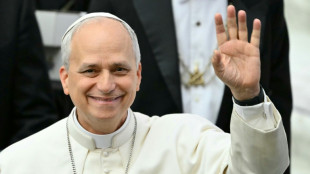 Leo XIV urges release of jailed journalists as Zelensky invites to Ukraine
Leo XIV urges release of jailed journalists as Zelensky invites to Ukraine
-
Film legend Bardot backs Depardieu ahead of sexual assault verdict
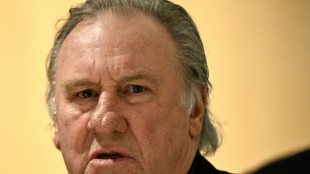

Government pressure forces Venezuelan media to self-censor
Football fans have become familiar with final calls being made by "VAR" -- video assistant referees -- but at one of Venezuela's biggest radio groups, it also controls what news gets aired.
Instead of referees locked away in video-replay bunkers, Union Radio's "VAR" is a simple WhatsApp group in which top brass discuss potential subjects, stories and interviews for each station under the company's media umbrella, sources tell AFP.
Union Radio boasts dozens of stations on AM and FM and was traditionally known for its strong criticism of the populist socialist government of Nicolas Maduro and before him Hugo Chavez.
But under pressure from authorities increasingly intolerant of criticism, Union Radio has been forced to police its own content.
This form of self-censorship has been branded "VAR" by its proponents, a joke referencing the video assistant referees who often overturn major football decisions.
"A structured censorship mechanism has been put in place," said Leon Hernandez, a university professor and coordinator at the Inter American Press Society (SIP), which ranks Venezuela as the South American country with the least press freedoms.
According to Hernandez, under Venezuela's restricted media ecosystem, which Reporters Without Borders has called a "communication hegemony," major media outlets like Union Radio are forced to take protective measures like creating an internal "VAR".
- Veto of 'dangerous' opinions -
"Nothing can go on air without VAR approving it," a producer at Union Radio told AFP under condition of anonymity.
It has forced radio journalists to look for creative ways to deal with sensitive subjects.
While it is possible to analyze the consequences of Venezuela's economic crisis, such as the collapse of public services, political themes are far more touchy -- particularly when it comes to Maduro's legitimacy.
The president's controversial 2018 re-election was rejected by Venezuela's opposition, led by former parliamentary speaker Juan Guaido, and almost 60 countries, including the United States, as well as the European Union.
"The term usurper or any other similar expression used to describe the current government or President Maduro incites rejection of the legitimately constituted authorities," says a note pinned to a wall in radio studios that must be read to guests invited to take part in a program.
When it comes to subjects concerning Guaido, none of them are ever authorized by the "VAR".
Some staff even claim that certain political and economic analysts, actors and singers had been vetoed by the radio group to avoid potentially "dangerous" comments.
"In effect there is a process of evaluating guidelines, themes and guests," a Union Radio executive told AFP under condition of anonymity, highlighting the challenges posed by a 2004 media law.
"It forces you to be the one that self-regulates to avoid any potential punishment under a law with a broad spectrum of sanctions" ranging from fines to the revocation of transmission licenses.
The regulatory body regularly sends out "reminders" to media as a type of warning not to repeat certain content, another anonymous industry insider said.
More than 80 percent of television and radio stations are in the process of renewing their licenses, which has made them more cautious of upsetting authorities, said the source.
- 'We're paying the price' -
Their fears are not misplaced: many outlets critical of the ruling socialist party have been forced out in the 22 years of government under Chavez (1999-2013) and Maduro.
In 2007, the television station RCTV was closed after its license was not renewed.
Six years later, business people close to the ruling United Socialist Party bought Globovision, a formerly staunchly opposition-aligned television station, as well as the editorial group that owned Venezuela's most popular newspaper, Ultimas Noticias.
A year after that, the traditionally conservative, century-old El Universal newspaper was likewise bought.
In all these cases, the editorial slant changed dramatically.
"There were episodes of self-censorship and, obviously, this caused discontent," said a television journalist, again under condition of anonymity.
Following a defamation case, the ruling party-controlled judiciary seized the premises of the El Nacional daily newspaper and handed them to Diosdado Cabello, a senior figure in the United Socialist Party.
The government has since opened a university in the former newspaper offices.
Prior to that, El Nacional, which now exists only online, had already been forced to reduce its circulation due to a lack of paper, the import of which is controlled by the state.
"We paid the price for not shutting up ... We will not give in," El Nacional director Miguel Henrique Otero told AFP.
"They tried to buy us," he added. "They offered us an astronomical amount and we rejected it."
Many opposition voices are confined to the internet where access is unreliable due to frequent power cuts and government firewalls that require a foreign VPN to be accessed.
The government, for its part, boasts its own massive media apparatus, but still claims to be fighting a "brutal media war" aimed at toppling Maduro.
A.Jones--AMWN